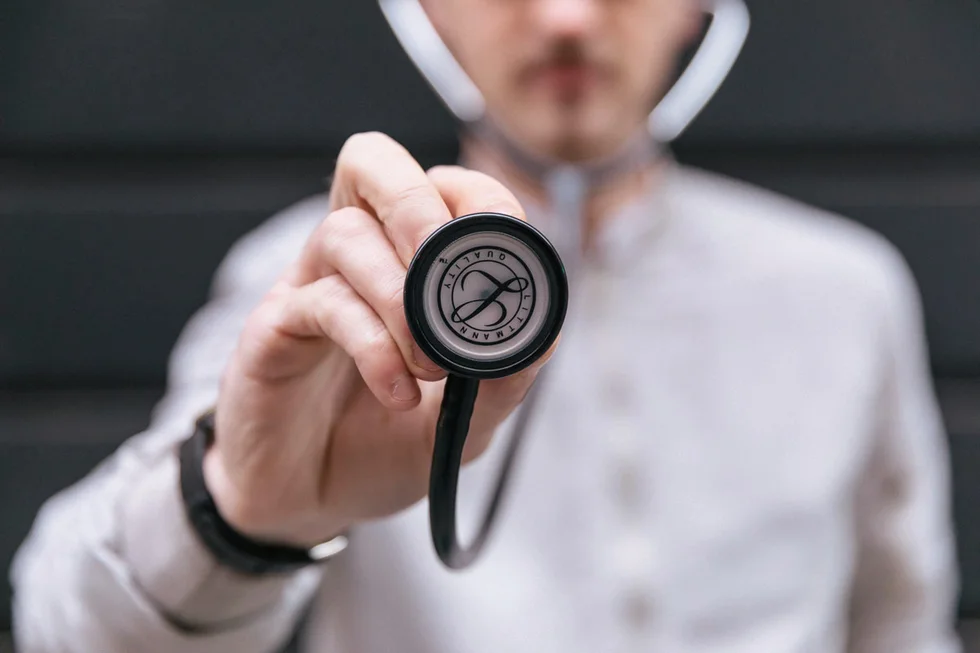How to get back on the job market after an illness
Oct 27, 2022
4 mins


Freelance writer, reporter
Navigating the job market has long been a difficult and tedious endeavor, but that case is especially so for individuals who have been out of work for an extended period of time due to an illness. It can be tricky to explain a gap in your resume to a potentially judgmental hiring manager, plus there are other aspects that come up when an absence from your profession is due to medical reasons.
Leaving work behind due to illness or injury can seem career-damaging, causing a noticeable resume gap. But by following certain tactics—like making sure to network properly, and perhaps maintaining relevant professional skills while out sick—one can try to ease the transition back into the job market.
Many individuals across the United States—and the world—have had to make the difficult decision to postpone their career goals and take extended time off of work in order to treat long-term medical problems like illness, mental health, or even injury recovery. After all, according to the Centers for Disease Control and Prevention (CDC), “six in ten Americans live with at least one chronic disease, like heart disease and stroke, cancer, or diabetes.” In 2019 alone, the CDC reported that more than half of American adults aged 18-34 reported having at least one chronic condition.
Explaining a resume gap
Explaining a gap in your resume can be daunting and awkward. That’s why networking—as longtime career counselor Lynn Berger, based in New York City, says—is key when it comes to getting back on the job market after being out for a while. “Networking is certainly more helpful than just sending out resumes,” she says. “If you stepped out of work in 2021 and you’re applying for jobs now, for instance, you’ll have to connect with people to show them what’s been going on with you.”
After that, it’s crucial to examine what you did during your employment gap and offer up anything relevant in your resume, cover letter, or conversations with the hiring manager. “If during the period you were out sick you were well enough to take any classes or do any volunteer work, you might want to challenge the interviewer to think about that,” Berger says. “In this way, you can capture more time on your resume.”
One way you can prepare for your return to the job market, Berger explains, is to try to “keep your skills fresh.” For instance, conducting research or reading, taking online courses, and watching webinars or lectures can be small ways to keep up with your field while you are out of work. “It’s all about added value and what you can bring to them now,” Berger says. “So instead of focusing on the past, you can show what value you add currently, what you’re doing today.”
And when it comes to being asked detailed questions about being out of work due to illness, it’s important to remember that you are legally not required to divulge any information you don’t feel comfortable sharing (thanks to the Americans with Disabilities Act, which protects prospective employees from having to divulge sensitive information). “If you want to keep your privacy, you can try to vaguely explain that you had responsibilities to tend to or personal matters to deal with,” Berger says. She adds that a lot of time, people are so concerned about having to explain themselves and their situations that they spend more time worrying about how their circumstances look than they do networking or utilizing other methods toward achieving a new role.
Also worth mentioning are some practical steps to take before returning to work after being out for an extended leave due to illness. Getting paperwork in order, checking company policies on sick pay in preparation for potential future absences, and ensuring you have proper emotional support are three key elements of transitioning back to the job hunt after being out sick.
Employers should be understanding
Today’s potential employers or recruiting professionals should maintain a sense of sympathy and compassion when it comes to people being out of work due to medical reasons. As Berger says, “everybody has different backgrounds and experiences and levels of understanding,” but it’s not guaranteed that a hiring manager won’t pass judgment, wary to hire someone who has been out of practice with their work or who might require further medical leave in the future. “It’s a question of who you are speaking with and what industry you are in,” Berger says. “Everyone has a different level of understanding, and most of the time in this situation it depends upon the applicant’s background, how long they were out, how they may have used the time, and what unique circumstances they may have been in.”
Notably, though, she adds that many employers across the United States have become more flexible and adaptable about work absences throughout the last two and a half years of the Covid-19 pandemic, during which time countless workplaces shifted to working remotely or updating their sick leave policies. In fact, new data reveals that cases of long Covid are keeping as many as four million people out of work. “With Covid, people needing to be out happened a lot,” Berger says. “It’s changed how we think about things.”
On a similar note, Berger mentions individuals who have had to miss work in order to focus on caretaking responsibilities put on them due to the circumstances of the pandemic. “During Covid, a lot of people had to leave the workplace to care for their children who couldn’t go to school,” she explains. “There was a serious reason why people had to step out of the office for a bit.” Berger hopes that the myriad situations like this that arose throughout the public crisis (and have since become commonplace) have made employers more considerate when it comes to noticing gaps in job applicants’ resumes. Plus, the Covid age has been witness to a push for mental health awareness, with employers becoming more in tune with how to support employees who suffer from depression, anxiety, or mood disorders, among other things.
“Depending on the reason and how long the person was out, employers will probably understand,” she says. “Life happens, and people have seen now that sometimes people are required to step out and deal with situations.”
Photo: Welcome to the Jungle
Follow Welcome to the Jungle on Facebook, LinkedIn, and Instagram, and subscribe to our newsletter to get our latest articles every day!

More inspiration: Find a job

Written in the stars: How astrology can boost your job hunt
Looking for cosmic career advice? From Aries bosses to Virgo perfectionists, your zodiac sign could be your guide to landing the perfect role.
Dec 24, 2024

Find your dream job through the quiet power of self-awareness
"It’s much easier to reach your dream destination when you know exactly where you want to go."
Nov 27, 2024

5 top US cities that recent grads are flocking to
The job market remains a challenging landscape for recent graduates, and some are looking to move for better job prospects.
Nov 19, 2024

Spooky Special: 5 frightening fumbles to avoid on the job hunt
Boo! Don't let the job hunt be the scariest thing you do this Halloween. Here are 5 spooky mistakes and how to avoid them.
Oct 24, 2024

Are durable skills the key to lasting career success?
Ever wondered what really makes a career last? The key might be mastering the right skills that evolve with you.
Oct 15, 2024
The newsletter that does the job
Want to keep up with the latest articles? Twice a week you can receive stories, jobs, and tips in your inbox.

Looking for your next job?
Over 200,000 people have found a job with Welcome to the Jungle.
Explore jobs